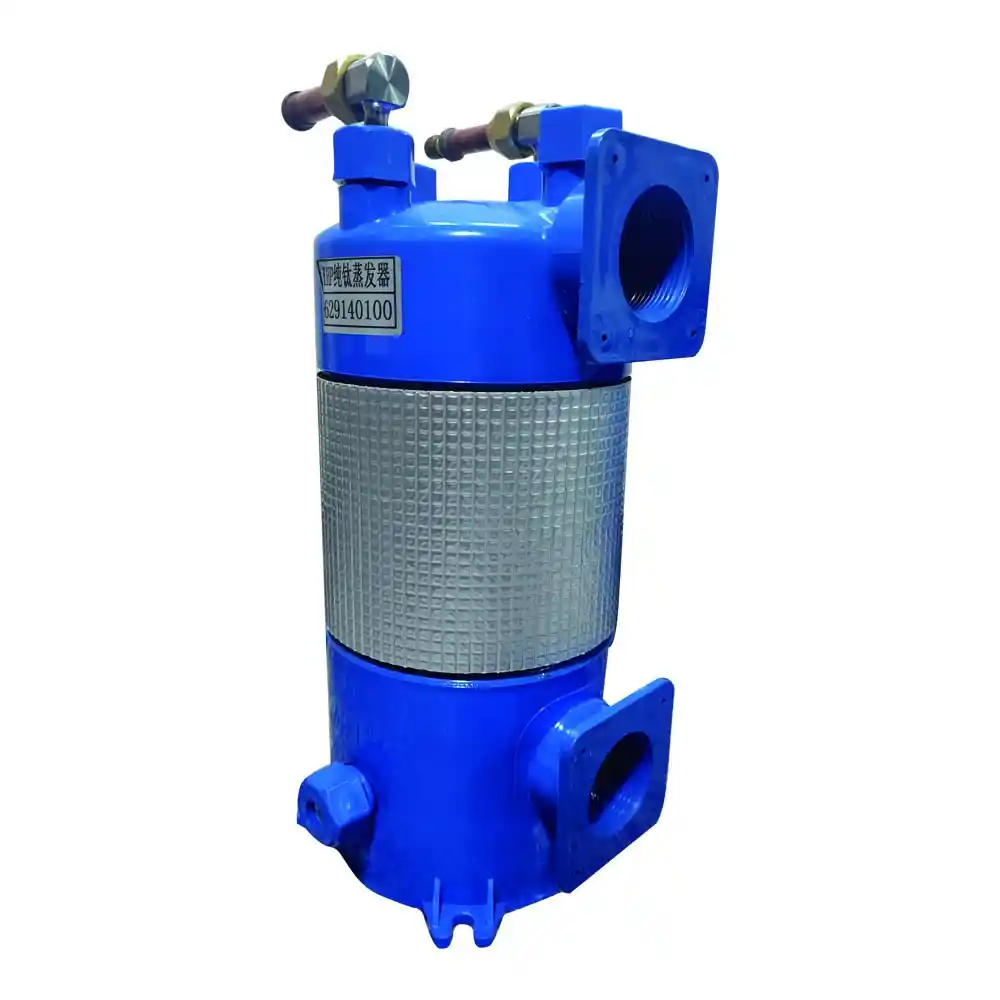Introduction
Titanium coil heat exchangers with blue PVC shells find extensive applications in the food and beverage industry. These heat exchangers provide efficient heat transfer, corrosion resistance, and sanitary operation, making them suitable for various processes within the industry. This section explores the diverse applications of titanium coil heat exchangers in the food and beverage sector.
Importance of Heat Exchangers in the Food and Beverage Industry
Heat exchangers play a crucial role in the food and beverage industry for the following reasons:
-
Temperature Control: Heat exchangers facilitate precise temperature control during processing, ensuring that food and beverages are heated or cooled to the desired temperatures for preservation, cooking, or other manufacturing processes.
-
Food Safety and Quality: Efficient heat transfer through heat exchangers ensures proper pasteurization, sterilization, and heat treatment, eliminating harmful bacteria and preserving the quality and safety of food and beverages.
-
Energy Efficiency: Heat exchangers enable energy recovery, where the heat from hot product streams is transferred to preheat incoming feed streams, reducing energy consumption and operating costs.
-
Sanitary Operation: The design of heat exchangers allows for easy cleaning, maintenance, and compliance with sanitary standards, preventing cross-contamination and ensuring hygienic operation in food and beverage processing.
a
Applications of Titanium Coil Heat Exchangers in the Food and Beverage Industry
Titanium coil heat exchangers with blue PVC shells find wide-ranging applications in the food and beverage industry, including:
1. Pasteurization and Sterilization
Heat exchangers are utilized for pasteurizing and sterilizing liquid and viscous food products, such as milk, juices, sauces, and soups. The titanium coil heat exchangers efficiently transfer heat, ensuring that the products are treated at precise temperatures and durations to eliminate harmful microorganisms while preserving the sensory and nutritional qualities.
2. Beverage Processing
In the beverage industry, titanium coil heat exchangers play a vital role in various processes, including:
- Heating and cooling of liquids: Heat exchangers are used for heating or cooling liquids such as fruit juices, soft drinks, alcoholic beverages, and water, ensuring optimal product quality and taste.
- Wort cooling in brewing: Titanium coil heat exchangers efficiently cool the wort during the brewing process, enabling rapid fermentation and preserving the desired flavors.
- Pasteurization of beer: Heat exchangers are used for pasteurizing beer to eliminate spoilage organisms and extend its shelf life.
3. Food Cooking and Cooling
Titanium coil heat exchangers are employed in cooking and cooling applications in the food industry, including:
- Cooking and blanching: Heat exchangers are used for precise heating and cooking of food products, such as vegetables, pasta, and meat, ensuring even heat distribution and consistent cooking results.
- Rapid cooling: Titanium coil heat exchangers aid in rapidly cooling cooked food products, such as soups, sauces, and ready-to-eat meals, to maintain freshness and extend shelf life.
4. Dairy Processing
In the dairy industry, titanium coil heat exchangers are extensively used for various processes, including:
- Milk cooling: Heat exchangers efficiently cool raw milk after milking, ensuring rapid cooling to inhibit bacterial growth and preserve milk quality.
- Cheese and yogurt production: Heat exchangers are utilized for precise temperature control during cheese and yogurt production, aiding in curd formation, fermentation, and product consistency.
5. Refrigeration Systems
Titanium coil heat exchangers are employed in refrigeration systems to transfer heat between the refrigerant and the food or beverage product. These heat exchangers ensure efficient cooling and temperature control in refrigeration units, cold storage facilities, and food processing plants.
Comparison of Titanium Coil Heat Exchangers with Other Materials
The following table provides a comparison of titanium coil heat exchangers with other materials commonly used in the food and beverage industry:
| Material | Advantages | Limitations |
|---|---|---|
| Titanium | Corrosion resistance, lightweight, high strength | Higher cost compared to some alternative materials |
| Stainless Steel | Corrosion resistance, durability, widely available | Lower heat transfer efficiency compared to some alloys |
| Copper | Excellent heat transfer, antimicrobial properties | Prone to corrosion in certain food and beverage products |
| Aluminum | Lightweight, cost-effective, good heat transfer | Not suitable for certain acidic or alkaline products |
Note: The material selection should consider factors such as product compatibility, cleaning requirements, and regulatory standards specific to the food and beverage industry.
Conclusion
Titanium coil heat exchangers with blue PVC shells are extensively used in the food and beverage industry for their efficient heat transfer, corrosion resistance, and sanitary operation. From pasteurization and beverage processing to cooking, cooling, dairy processing, and refrigeration applications, these heat exchangers play a vital role in ensuring food safety, product quality, and energy efficiency. Understanding the diverse applications and advantages of titanium coil heat exchangers enables manufacturers to meet the specific needs and requirements of the food and beverage industry.


